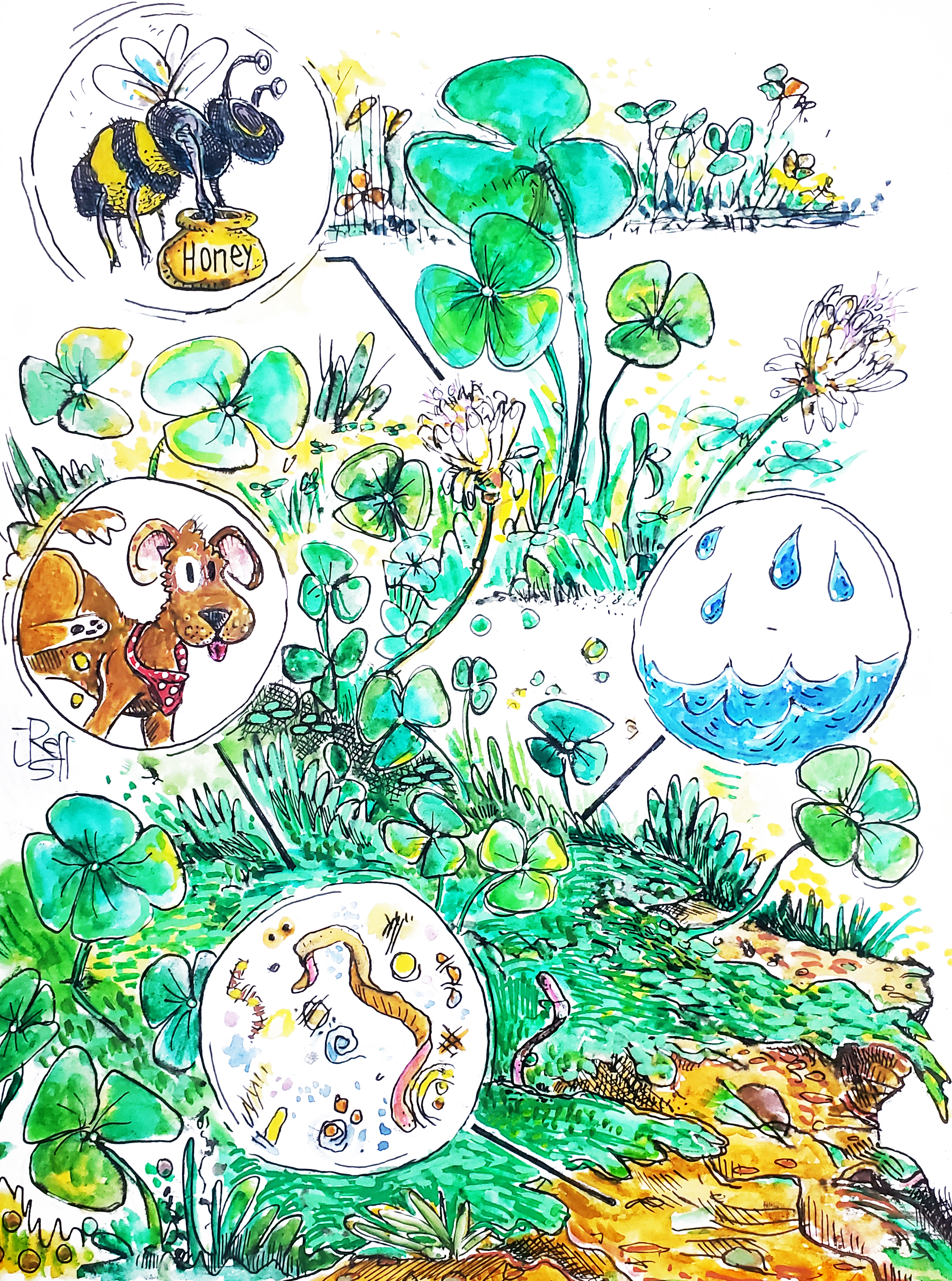Coop Scoop Blog
Let Clover Take Over: Save Time, Money, & Our (ONLY) Home Planet
By Ben Goldberg
By now many of us have learned that mono-cultured turf grass lawns are a waste of resources, time, and—worst of all—chemically toxic to the environment (see “The Grass is Never Greener: Lawn Begone!” in Scoop Winter 2020). But what’s a lawn-loving human to do? One solution, in the Northeast anyway, is to let clover take over. These flowering, perennial legumes can enhance, if not replace turf grass lawns in our part of the world. Clover made up most of the lawns in the U.S. until the 1950s when herbicides were introduced-- herbicides that killed clover and therefore redefined clover as a “weed” instead of a common, earth-friendly ground cover.
Clover as a turf replacement or additive does have some (albeit minor, in my book) disadvantages, including:
- Clover alone may not be tough enough for high-traffic areas, but it can be tough enough if it is mixed with grass.
- Although it is a perennial, it may have to be reseeded every two or three years if it does not spread or self-seed adequately, which it often does. On the other hand, clover seed is much less expensive than common grass seed. (E.g., the Honest Weight price is $2.99 per 2 ozs.)

Meanwhile, here are some of the advantages/benefits of using clover in or instead of grass lawn.
- Clover flowers attract pollinators, including one of the most beneficial: bees. (Note that if bee sting allergies are an issue, or if young children use the lawn, you can grow clover without having many bees simply by mowing during the blooming season to prevent flowering.)
- Clover also attracts parasitoid wasps, tiny harmless creatures that feed on destructive insect pests such as aphids, scales, and white flies.
- Clover grows well in a variety of soils, even poor soils. It chokes out weeds, reduces erosion, and, because it holds moisture, clover is relatively drought-tolerant, requiring little if any watering. It stays green during the hot summer months and greens up early in Spring.
- It can grow well in full sun or partial shade, and it feels great to walk on barefoot!
- Because it grows low, clover does not require frequent mowing, if any.
- Clover doesn’t require any chemicals, herbicides, or fertilizers. It is a legume so rather than depleting nutrients in the soil, clover converts atmospheric nitrogen into a form that benefits plants. In effect, clover fertilizes itself and, in mixed lawns (clover and grass), it feeds whatever it grows with.
- Clover lawns don’t require aeration, and decomposing clover roots attract earth worms that loosen soil and leave nutritious vermicast, AKA “worm poop”.
- Clover won’t brown up from dog urine the way turf grass does.
Finally, for those of us who (unlike me) prefer a more manicured look to our lawns, clover can be mixed with regular grass and the lawn will still reap many of the listed benefits.
Is clover the perfect anti-turf grass solution? No. Perfection continues to elude us in most matters, but being able to save money, time, and our environment is not a bad trade-off.
Honest Weight carries clover seed during the growing season, and it is also easy to find online, for example at:
Hudson Valley Seeds - https://hudsonvalleyseed.com/
Fedco Seeds - https://www.fedcoseeds.com/ogs/dutch-white-clover-8040
For information about how to grow a clover lawn, check out the following:
https://learn.eartheasy.com/articles/how-to-establish-a-clover-lawn/
https://earth911.com/home-garden/clover-lawn-improve-biodiversity/
Illustration by: Jeffrey Wright-Sedam
